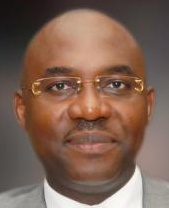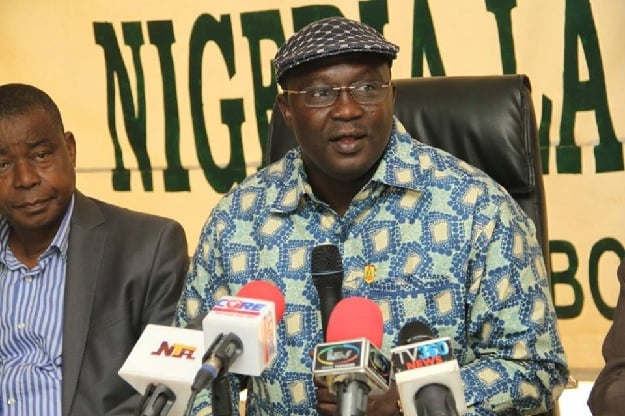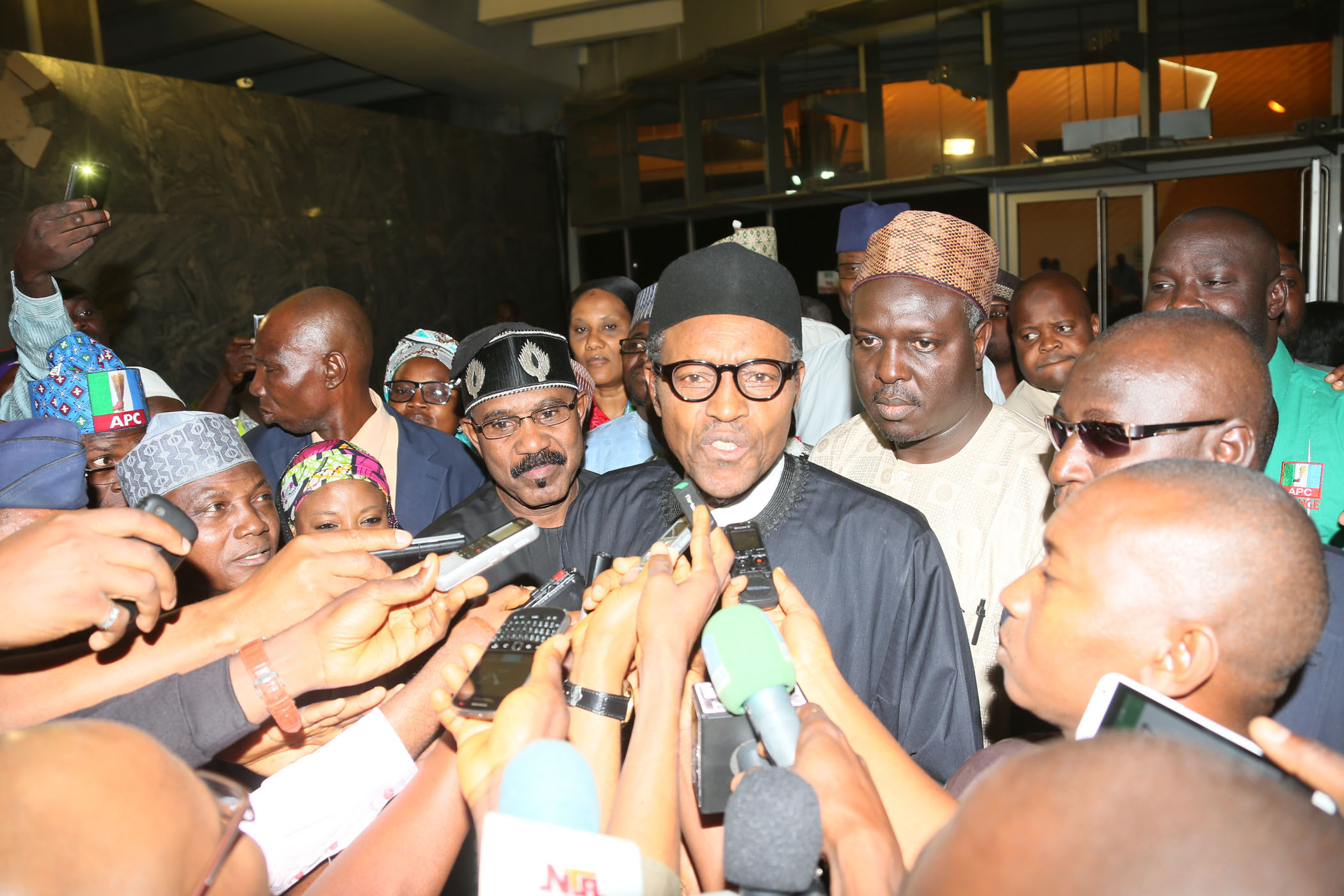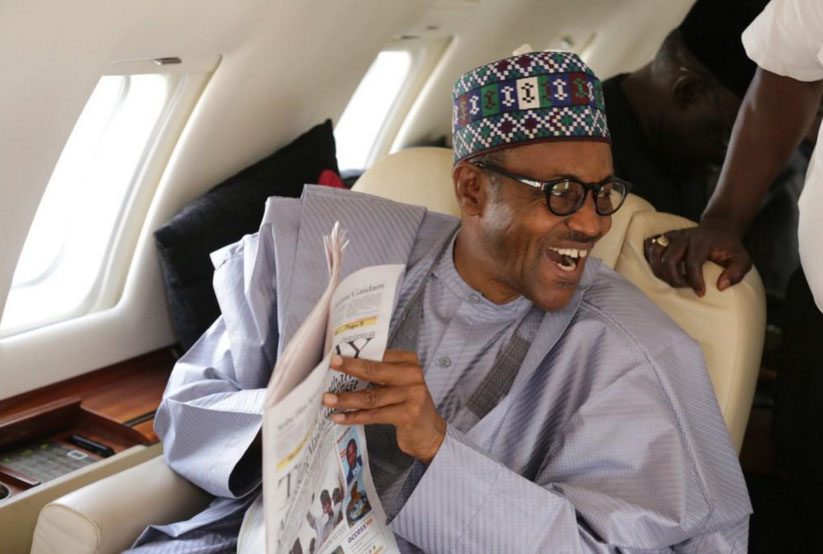Even the most ardent of his supporters would have felt ashamed at Comrade Ayuba Wabba’s lame showing in Abuja this week. A moment that should have been seized to showcase personal gumption and a good reading of the national mood was alas squashed on the altar of petty ego and delusion.
The consequence was the humiliating blow the Nigeria Labour Congress (NLC) suffered Wednesday, the opening day of the “grandmother of all strikes” the nation was told to await, in response to last week’s increment of petrol price from N86.50 to N145. Other than a sparse procession Wabba and like minds led through some deserted Abuja streets and a whimper at a few isolated locations across the country, the strike was a huge failure.
Most workers – both in the public and private sectors – reported for duty in clear contempt of the earlier call to action. Never in recent history has the leadership of the organized labour been made to look like a toothless bulldog.
But this demystification was self-inflicted. It started when labour turned up at the negotiating table with the government team on Monday. Beefy Wabba, a factional leader of NLC, would not agree to share the same table with willing pint-sized Comrade Joe Ajaero who leads a smaller faction. At the venue on that fateful day, the story is told of how “concerned elders” present laboured in vain to convince Wabba to consider burying whatever differences he had with Ajaero, even if momentarily, in order to present a united front before the “oppressor” (the government), if only for the sake of the hard-pressed workers.
Advertisement
Specifically, Edo governor and “battle-hardened” labour veteran who should know, was said to have frantically tried to persuade Wabba on the wisdom in labour sitting as a united family at the round-table. In any case, given the numerical strength of his own faction, no one would have contested Wabba’s privilege to speak on the movement’s behalf at the enlarged gathering.
But like a man acting under a spell or what the Yoruba call “edi”, Wabba stubbornly stuck to his guns. It was clear that the chubby-faced, bespectacled gladiator had completely misread all Karl Marx’ manuals on battle tactics and strategy in the circumstance. So, the government team had no other options than to meet the workers’ “champions” in separate sessions!
To begin with, how far did Wabba really think he could go with TUC and critical affiliates like NUPENG, PENGASSAN, electricity union backing out of the action?
Advertisement
Indeed, what transpired before, during and after the Abuja twin negotiations would have been more than sufficient to script a Nollywood comedy movie. Only that the point at issue was not exactly a laughing matter. Worse, it was at the expense of Nigeria’s long-suffering masses. Whereas Ajaero sat through with the government team and later partook in addressing a joint press conference on the outcome of the engagement, Wabba chose to stage a walk-out during their own session. It was clear he came to the table with only one idea: reversal of the petrol price to N86.50 or nothing. Outside the hall, he told waiting pressmen that night the strike would go ahead as planned the following morning.
Well, this is not the time to be drawn into the distractive argument on the propriety or otherwise of the Wabba still calling out workers on strike in view of subsisting restraining order by the Industrial Court. In labour circles, such is often dismissed as “black market injunction”. That is beside the more fundamental point that needs to be made. Most disturbing is the lack of rigour Wabba and the other faction demonstrated during all the lavish media opportunities they had since the official announcement of N145 as new pump price.
One had expected a more strategic labour would come up with a more nuanced argument, framing the terms for a more rigorous national conversation on the matter. Ideally, the first salvo in the counter-attack expected should be a forensic scrutiny of the template adopted to arrive at the N145. Since workers themselves are embedded in the system, one would have thought the labour would, by now, have clinically taken the figure apart, item by item, with a view to exposing to the public whatever skeletons the usually cynical government might still be hiding in its closet.
If truly the downstream sector has been liberalized how come a ceiling is still prescribed to the price? In case demurrage cost had been built into the new price, how justifiable is that? Should consumers be made to pay for the efficiency of government’s agency? How equitable is the new forex policy proposed to drive the deregulated downstream sector when a few would appear to have more access to official rate than their competitors? What is the guarantee those so favoured would not, as usual, succumb to the temptation to round-trip? In fact, who said the labour, as a major stakeholder, should not be involved statutorily in arriving at the price for petrol by the regulatory agency for transparency and accountability?
Advertisement
Instead of steering the public debate in this wholesomely critical direction, the labour leaders we saw in the past few days appear only adept at sloganeering, certainly not like the fraternity of deep thinkers the nation once had. For instance, the vacuity of a sustained argument for subsidy retention at this hour is starkly exposed when juxtaposed with the non-allocation of a single kobo for such in the 2016 appropriation act signed into law only last week by President Buhari. A far-sighted labour should, therefore, have seen the arrow coming long before now. The tragedy of the matter is that the Nigerian people increasingly seem stuck with guys unwilling to accept that weapons used in getting quick results last century have now largely become antiquated and may no longer be efficient today.
Even if Wabba has a superior argument, he has thus far denied himself the opportunity to let us know what it is with his washy-washy tactics so far. Overall, Wabba’s colossal error of judgment has been parlayed to a substantial capital by his rival (Ajaero). By agreeing to engage the government further in the next two weeks during which all the options would have been sufficiently explored, the latter clearly showed more strategic prudence and a better reading of the politico-economic forces at play presently.
Truth be told, Nigeria today is already gasping for breath as the global commodity crisis plunges oil-dependent economies deeper and deeper into misery. For example, Venezuela, another major oil producer, is already on the verge of social chaos as public queues lengthen for essential commodities. Brazil’s president has just been suspended for six months on account a crisis ignited by fall in oil revenue.
For Nigeria, it is case of a perfect storm. Not only has oil price plummeted steeply, daily production average has fallen from 2.2m to 1.2m bpd on account of resurgent militancy and pipeline vandalism in the Niger Delta. Available records indicate that the nation’s total oil receipt for the month of April was a paltry $600m out of which a staggering $225m was spent on petrol subsidy. Clearly, this is no longer sustainable. Already, more than two-third of the 36 states of the federation are owing back wages. Even the Federal Government itself has for months been hawking bonds, literally raiding the money market to raise cash to pay its own workers.
Advertisement
Against this dark backcloth, the labour needed at this time is one that can negotiate creatively and realistically. Sure, more cash will be available to the government once petrol subsidy is banished. Then, demand for a top-up of worker’s pay would become logical. Besides, efforts should be geared at exploring avenues through which the pain brought by the price hike on the most vulnerable in the society could be better cushioned. More fundamentally, it is high time the labour itself shook off its present lethargy and be alive to its historic duty by rallying other progressive forces to initiate and sustain a new offensive against the culture of waste in public office. Only then would more resources be freed to touch people’s lives more tangibly.
Niger Delta’s midnight kids & nation in darkness
The more the nation’s colony of ex-militants and other known Goodluck Jonathan sympathizers try to extricate themselves from resurgent pipeline vandalization in the Niger Delta, the more they seem given away by some curious coincidences. From his hideout suspected to be in Gbaramatu (in Delta State), fugitive Tompolo has been churning out tons and tons of statements lately disclaiming the new militant group called Niger Delta Avengers (NDA).
Advertisement
Funnily, the more Tompolo tries to distance himself from NDA’s nefarious activities the harder the group defend him in statement issued each time crude pipeline is blown or gas vessels broken. They tell us he is a nice guy; the type a nation should be proud to call a patriot. Wonderful indeed.
But this serpentine road looks familiar. We walked the dodgy path before.
Advertisement
The comedy continued few days ago when a group that called itself “Egbesu Mightier Fraternity” – obviously operating from the same depraved hole as NDA – took infamy to another level by adding the release of Sambo Dasuki, a key suspect in the theft of $15bn arms cash, to their list of conditions to cease fire.
It is not our intention at this moment to question or speculate on what moral universe could possibly drive supposed “revolutionaries” or “freedom-fighters” or any entity that affects any modicum of righteousness to so blatantly hold brief for someone suspected – in fact, already encaged by mounting exhibits – of a felony as grave as the complete rape of the communal till and remain unashamed of the obvious contradictions. That is a topic for another day.
Advertisement
Of grave concern presently is the great hardship the activities of these fake “freedom-fighters” are increasingly imposing on the rest of us. Damaged pipelines have resulted in the steep decline of in oil receipt, and broken gas vessels have led to a drop from an average of 4,000 to an abysmal 1,300 megawatts in the past few days. Without gas, the power plants cannot generate electricity.
It is reassuring that the authorities are already taking the current challenge as an opportunity to finally do what ought to have been done all these years: diversifying the nation’s energy source from dependence on hydro and gas. At least, this is the simple message one could distill from the policy pronouncement made by 3-in-1 minister, Babatunde Fashola, SAN, last week while unveiling a roadmap as a response to the worsening energy crisis.
According to the minister, greater energy would in the coming months be channeled towards escalating the production of energy from solar and coal, to be added to the national grid and bolster what is available for consumers. Given the country’s relatively good weather, the solar option looks more attractive.
Appetizing as that might sound, the devil is however in the details. Solar energy doesn’t come cheap. The components are unique and capital-intensive. It has been suggested that the delivery date could be shortened if the government finds the means to expedite the creation of the enabling legal framework, which ordinarily involves tedious paper-work. Apart from offering other incentives like waving of duties on the hardware and software to be imported.
So, the question: does the government have the political will to bring the vision outlined in the Energy Mix to fruition and in good time?
Only when energy source is completely diversified from gas and hydro can the nation effectively castrate deviants and irritants who currently hold us to ransom by breaking the pipes ferrying gas to the energy plants.
But before then, it is high time genuine leaders of the Niger Delta rose and told off these criminal elements to stop profaning the Niger Delta question by turning an otherwise noble struggle into a tool for extortion and self-aggrandizement. True, they made fortune through several guises and disguises under their idol, Jonathan. But how did that really benefit the typical swamp-dweller who, like most other Nigerians, remains trapped today in desperate condition, with little or nothing to show for all the six relatively “prosperous” years Jonathan held sway.
As one has always maintained in this column over the years, plain buccaneers either seeking fresh ransoms or sulking over the loss of source of cheap money should not be mistaken for those genuinely seeking cogent and sustainable answers to the enduring Niger Delta question.
Views expressed by contributors are strictly personal and not of TheCable.
1 comments







This column so fantastic and fair, I hope the people concerned will pick one or two things. Nigeria needs to be serious and stop killing the economy in the name of tribes ,politics or interest, Nigeria and Nigerians interest should come 1st in all we do.